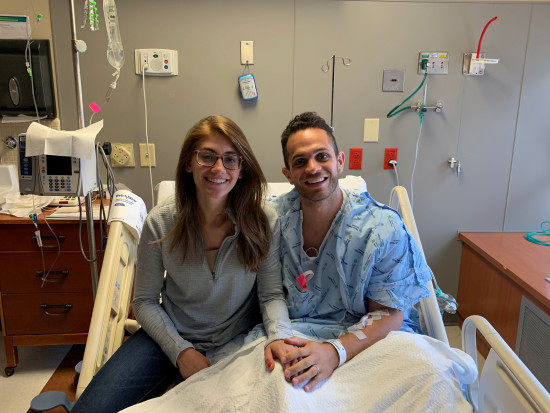Plane Makes Emergency Landing In Dallas When Scuba Diver Suffers Decompression Sickness – CBS Dallas / Fort Worth
[ad_1] DALLAS (CBSDFW.COM) – A plane made an emergency landing in Dallas when a scuba diver returning to Denver from his honeymoon in Cancun suffered decompression sickness during the flight. Malik Altoos and his wife Kenda Albaree were on their way home last week when Altoos started feeling sick. “We were only about 20 minutes
[ad_1]
DALLAS (CBSDFW.COM) – A plane made an emergency landing in Dallas when a scuba diver returning to Denver from his honeymoon in Cancun suffered decompression sickness during the flight.
Malik Altoos and his wife Kenda Albaree were on their way home last week when Altoos started feeling sick.
“We were only about 20 minutes into the flight when my hands started tingling. I felt nauseous, dizzy and had trouble breathing,” said Altoos, 26. “I told the flight attendant I need oxygen right away. I think I have decompression sickness.”
The newlyweds went on three dives – from 15 feet to 30 feet below the surface.
About 20 minutes into the flight, Altoos realized what was happening.
Decompression sickness is caused by high levels of nitrogen entering the tissue.

Kenda Albaree and her husband Malik Altoos (courtesy: Texas Health Resources)
Nitrogen bubbles can block blood vessels, which can be deadly.
“He had been working out a lot which made him very dehydrated,” said Edward Tomoye, D.O., an internal medicine physician on the medical staff at Texas Health Presbyterian Hospital Dallas. “It’s important to stay hydrated by drinking water before and after a dive.”
Dr. Tomoye, who also specializes in hyperbaric medicine, says people who do high intensity workouts before a dive might increase their risk for a diving accident or decompression sickness (DCS). The illness results from the reduction in the ambient pressure surrounding the body or when bubbles grow in tissue and cause damage. It occurs in 1,000 U.S. scuba divers each year, according to the Divers Alert Network.
“The deeper you dive, the nitrogen bubbles in your body begin to dissolve into your blood and tissues,” Dr. Tomoye said. “If you come back up to the surface rapidly or you stay in the water for a long period of time, those bubbles expand and block blood flow.”
After the plane landed safely in Dallas, Altoos had hyperbaric oxygen therapy at Texas Health Presbyterian Hospital Dallas.
Doctors recommend divers who do multiple dives in one day, wait at least 18 hours before flying.
Altoos said he waited 19 hours, but doctors say decompression sickness can very for different people.
Let’s block ads! (Why?)
[ad_2]
Source link








Comments
Comments are disabled for this post.